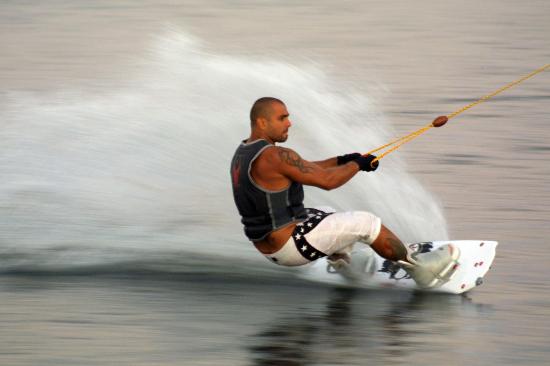How to Do a Tailbone on a Wakeboard

Tailbone is one of the many tricks that can be performed on a Wakeboard. As with any trick, doing a tailbone to perfection would require lots of practice and some basic wakeboard skills to start with. Performing a tailbone is not by any means easy and for this reason you should be confident enough that you can execute the trick before you even start practising. Once you have made up your mind, all you will need is a wakeboard and a boat that can tow you across open waters while you ride the wakeboard.
Instructions
-
1
Before you can perform a tailbone which is a relatively advanced wakeboard trick, you will have to constantly increase the time for which you remain airborne on your wakeboard after each wake. You can accomplish this by approaching each wake with a progressive edge.
-
2
Also, you have to ensure that your landing back on the water surface is smooth every time you go airborne by a wake. Practice as much as necessary and do not proceed to the next step until you are confident.
-
3
To do the tailbone, approach a wake created by the boat at fairly high speed. Make sure that the rope you are holding is taut and loaded.
-
4
As you reach the wake’s top, make a jump. You will go airborne after the jump.
-
5
While you are airborne, straighten your back leg. In order to control this manoeuvre, you may want to bend your front leg just a little bit.
-
6
Immediately grab the wakeboard’s nose as soon as you assume the position described in the previous step. This may seem difficult initially, but with enough practice and numerous attempts, you would be able to control this manoeuvre to perfection.
-
7
After having held the wakeboard’s nose momentarily, release it and straighten your legs.
-
8
Bend your knees just a little bit before you land back on the water surface. The shock created when you make contact with the water is more than enough to set you off balance. Bending your knees just before landing will help absorb that shock to a great extent, thus helping you make a smooth and comfortable landing.





